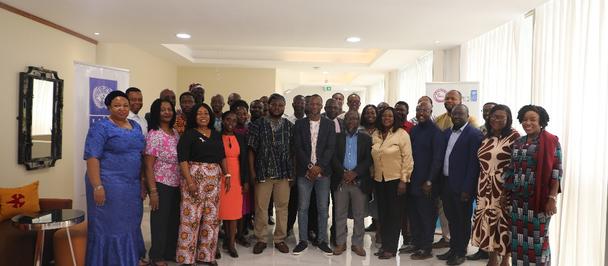Hydro chlorofluorocarbon Phase-out Management Plan for Ghana
The Montreal Protocol on Ozone Depleting Substances is an international treaty designed to protect the earth’s fragile ozone layer by banning as well as phasing out the production and consumption of ozone-depleting substances such as CFCs, HCFCs and halon and reducing their abundance in the atmosphere.
Ghana ratified the Montreal Protocol on 24 July 1989. In 1991, it established the National Ozone Office within the Environmental Protection Agency (EPA) to respond to mandates of the amended Montreal Protocol. In this regard, the project seeks to provide institutional strengthening support to the National Ozone Office. Historically consumption of HCFCs in Ghana has typically been HCFC-22 used as a refrigerant in the refrigeration servicing sector of residential and commercial air conditioners and chillers as well as refrigeration equipment with larger refrigerant charge, such as commercial and industrial refrigeration equipment.
The first stage of the project (2010-2020) aims to establish an enabling environment for safe use of hydrocarbon refrigerants and to initially phase out 17.3 tonnes of substances with Ozone Depleting Potential (ODP), i.e. 35 per cent of the initially-estimated baseline for HCFC consumption by 1 January 2020. This will be implemented through a combination of regulations, training and certification of technicians, focused sensitization of target groups, refrigerant recovery and retrofit projects and end-user incentive programmes.

 Locations
Locations


